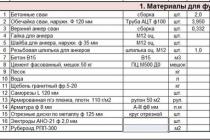In it is told about the contract of a civil law nature ( GPC agreement) with an individual for the performance of work or the provision of services and what taxes and contributions to pay under such contracts in 2019.
GPC agreements: taxation in 2019
Tax on income paid under the GPA arises if the employed physicist is not individual entrepreneur. Then the company acts as a tax agent on a general basis. Otherwise, the merchant pays taxes for himself.
A clause in the agreement with a non-IP that the citizen himself must pay personal income tax will not relieve the company from the duties of a tax agent. The corresponding condition is void.
Use the normal tax rate. For payments in favor of citizens of the Russian Federation - tax residents tax is withheld at the rate of 13%. If the counterparty is a non-resident, the rate is much higher - 30% (clauses 1 and 3 of article 224 of the Tax Code of the Russian Federation). Recall that persons who are in Russia for at least 183 calendar days within 12 consecutive months are recognized as residents for personal income tax (clause 2 of article 207 of the Tax Code of the Russian Federation).
It is necessary to transfer personal income tax to the budget at the place of registration of the organization. Tax withheld from the income of employees who have entered into an agreement with separate subdivision, list at the location of the OP (clause 7 of article 226 of the Tax Code of the Russian Federation).
The deadlines for paying personal income tax on income from GPA in 2019 are standard: no later than the day following the payment (clause 6, article 226 of the Tax Code of the Russian Federation). The payment template for transferring deductions to the budget we have given above.
Personal income tax deductions for contractors (performers)
A resident of the Russian Federation involved in work under a civil law contract can be provided with the following personal income tax deductions.
Standard deductions. For example, for children (for the first child in 2019 - in the amount of 1400 rubles). Only the deduction is possible only for those months during which the contract is valid. And you need to take into account all the income received by the physicist since the beginning of the year.
If the agreement is valid for several months, and the remuneration is not paid monthly (for example, in a lump sum after the expiration of the contract), then the procedure is as follows. Standard tax deductions provide for each month of the contract, including those months in which the remuneration was not paid.
In order to make a deduction on your part, you need:
- get everything Required documents- focus on the usual package, which is also needed in the case of staff members (clause 3 of article 218 of the Tax Code of the Russian Federation);
- determine the amount of the deduction (clause 1, article 218 of the Tax Code of the Russian Federation) - for example, with a different number of children in the family child deduction different people will be different.
Professional deduction. An employee can receive one upon application (clauses 2 and 3 of article 221 of the Tax Code of the Russian Federation). The deduction is provided (one option is selected from the two indicated):
- in the amount of expenses actually incurred for the performance of the contract;
- in the amount of the standard given in the table in Article 221 of the Tax Code of the Russian Federation.
Insurance premiums under GPC agreements in 2019
Retirement and health insurance in the case of a GPC agreement for the performance of works and services, it is paid by the customer in general order. But there are peculiarities in terms of social contributions and contributions for injuries.
Let's look at each aspect in detail.
When an accountant calculates contributions to OPS and OMS
As in the case of payment wages, in relation to the GPA, see the list of insured persons in special regulations. This is the Federal Law of December 15, 2001 No. 167-FZ “On Mandatory pension insurance in Russian Federation". And the Federal Law of November 29, 2010 No. 326-FZ “On Compulsory Medical Insurance in the Russian Federation”.
In particular, contributions to pensions and compulsory health insurance are accrued if the contractor (executor):
- citizen of the Russian Federation;
- a foreigner temporarily or permanently residing in the Russian Federation.
Insurance premiums for pension and medical insurance under GPC agreements in 2019 are charged at the usual rates that the company applies to payments to its full-time employees. By general rule 22% of the remuneration goes to pension accruals, 5.1% - to medical.
At the same time, the tariff of 22% in 2019 is applied for payments not exceeding (for each physicist on an accrual basis from the beginning of the year) 1,021,000 rubles. Further used reduced rate ten%. But medical contributions at the rate of 5.1%, it is necessary to accrue on the entire amount of remuneration, regardless of the total level of income. That is, no bar limit value for the calculation of medical contributions is not established.
And, recall, the accrued amounts since 2018 are not transferred to the funds - PFR and FFOMS, but to the IFTS. For 2019 given order is fully preserved.
When an accountant does not charge contributions to OPS and CHI
If an individual entered into a GPC agreement with you in 2019 in the status of a businessman, then you do not need to accrue contributions. The merchant pays his own contributions for established order. You are exempt from this obligation. This is a major exception that every accountant should be aware of.
Payments under civil law contracts: contributions to OSS
Insurance premiums in case of temporary disability and in connection with motherhood, paid since 2017 also not to the fund, but to the Federal Tax Service, do not arise under the GPA. This one distinguishing feature such agreements from employment contracts. And as a result, contractors cannot go on paid sick leave, as well as on maternity and children's leave.
Thus, all things being equal, work on employment contract a citizen is more profitable than under the GPA. But employers save. In particular, on the transfer of 2.9% of the amounts paid to the contractor (up to the maximum base in 2019 of 815,000 rubles).
Therefore, if civil law relations are fictitious, they carry a risk. Controllers pay close attention to the execution of agreements. The purpose of the inspectors is to identify and exclude cases where labor relations are hidden under the guise of a GPA. As a punishment - a fine under the Tax Code of the Russian Federation - 20% of the amount of "hidden" contributions (Article 122 of the Tax Code of the Russian Federation). And from labor inspectors a fine for the company for 50,000-100,000 rubles. and the head - for 10,000-20,000 rubles. If an individual entrepreneur illegally concluded a GPA instead of a labor one, the sanction against the entrepreneur in 2019 is 5,000-10,000 rubles. (Clause 4, Article 5.27 of the Code of Administrative Offenses of the Russian Federation).
To avoid claims and unnecessary questions from auditors, remember:
- it is impossible to write in the GPA instead of one-time tasks the obligation to perform any work during the day (for example, clean the office);
- it is impossible to indicate in the GPA the specialty or profession of the counterparty physicist;
- it is dangerous to conclude a contract for a long time;
- it is risky to provide a contractor's work schedule (correctly - only the stages of delivery of work).
Contributions to social insurance for injuries
Insurance contributions to the FSS in case of injury are charged only under a number of GPC agreements and only if this is expressly provided for by the agreement (clause 1, article 20.1 federal law dated 24.07.98 No. 125-FZ). The types of agreements are:
- to perform work;
- service;
- copyright contract.
It is clear that by default, by not paying the "unfortunate" fees, the customer saves. But if you look at long term, then it may be profitable to insure your contractors (executors) in the FSS in 2019. That is, include the corresponding clause in the GPA and pay contributions for injuries from all payments. And here's the thing.
In life itself, no one is immune from an accident at work. And if the injury occurs through your fault, then you will have to compensate the victim for earnings lost due to disability (Article 1086 of the Civil Code of the Russian Federation). It will also be necessary to pay the additional costs of the contractor associated with the misfortune (clause 1 of article 1085 of the Civil Code of the Russian Federation). And even to compensate for non-pecuniary damage at the request of the victim (clause 3, article 8 of the Federal Law of July 24, 1998 No. 125-FZ).
If you have secured yourself and included in the GPC agreement with an individual a link to contributions to the FSS, Negative consequences traumatic activities will not be so deplorable. The fund will pay sick leave to the victim.
To find out if your business creates an increased danger, an approximate list from paragraph 1 of Article 1079 of the Civil Code of the Russian Federation will help. So injury insurance is indicated for construction and other related activities, or if used:
- vehicles;
- mechanisms;
- high voltage electrical energy;
- explosives;
- potent poisons.
(of a civil law nature) does not mean that taxes should not be charged on it and insurance premiums. The corresponding obligation, in particular, is indicated in Article 420 of the Tax Code of the Russian Federation. But what kind of contributions and taxes under the GPC agreement are waiting for us in 2019? Should we prepare for change? How to make invoices? These issues need to be sorted out.
GPC agreement: what taxes need to be paid?
First of all, it is necessary to clarify who exactly should deal with payments. The customer is traditionally recognized as a tax agent under GPC agreements with an individual. But if he does not fulfill the corresponding obligation, then the Federal Tax Service of the Russian Federation may also have questions for the contractor. That is, in this case, prudence must be exercised by both parties.
Please note that the nature of the payments depends on who exactly will be the contractor. If this - individual, then you need to deal with income tax and with contributions to the Pension Fund and CHI. Individual entrepreneurs have their own situation with the calculation of taxes. In the case of an individual entrepreneur, everything depends on the specific tax regime.
So, if a GPC agreement is concluded with an individual, then income tax must be paid at a rate of 13% or 30% in accordance with Article 208 of the Tax Code of the Russian Federation. The corresponding provision should be fixed directly in the text of the agreement. In this case, the customer acts as a tax agent. So if there are any problems with payments, the Federal Tax Service of the Russian Federation will first of all ask questions to him.
The fee received by an individual is not subject to 100% withholding tax: the performer has the right to use professional, standard and social deductions under article 210 of the Tax Code of the Russian Federation. When calculating tax, you must first reduce tax base on the amount of all expenses that the contractor has made in connection with the order. This may be the purchase of consumables, wear of tools, equipment, and so on. Such expenses are confirmed by waybills and checks.
It is also worth taking into account the presence of dependent minors in the performer. If at the same time the taxpayer's income does not exceed 350 thousand rubles, then standard deductions. Please note that both deductions and payments are calculated for the period of the contract.
Insurance premiums under the GPC agreement
Under the GPC agreement, you need to pay a number of insurance premiums. It:
- 22% in the FIU. Please note that in 2018 the insurance base was equal to 1 million 21 thousand rubles. From everything that is more than the specified amount, you need to withhold 10%;
- 2 - 14% depending on the working conditions and the harmfulness (danger) of the work performed;
- 5.1% is the fee that must be transferred to the CHI.
Please note: the customer, in connection with the main activity, may have preferential rates on insurance premiums. Then they will also apply to GPC agreements.
Insurance payments are not withheld certain cases. It is about the following:
- the contractor is a legal entity or an individual entrepreneur;
- the contractor is a foreigner or a stateless person who provides services outside the country (Article 422 of the Tax Code of the Russian Federation);
- maternity and temporary disability contributions are not paid.
Contributions are deducted when the nature of the agreement involves the provision of services or the performance of work. If we are talking about a lease agreement, as well as a cash loan, then do social payments won't have to. If the purpose of the transaction is both the performance of works and the transfer of property, then contributions will be paid only in respect of the first part. The transfer of property is also taxed, but on a different basis.
How to reduce the base for insurance premiums?
Insurance premiums under the GPC agreement are calculated according to a specific tax base. As I said, it can be reduced by the amount of expenses incurred by the contractor. This is real when concluding an agreement involving the transfer of intellectual property rights or the payment of remuneration to the author.
But the corresponding expenses must be confirmed. And if it is not possible or impossible to prove the expenses, the tax base according to the Tax Code of the Russian Federation is allowed to be reduced by a certain amount of percent when:
- creation of graphic, decorative and sculptural works - by 40%;
- writing theatrical productions and music for films - by 40%;
- making a discovery in production - by 30%
- creating works of painting, photography or architecture - by 30%;
- writing music - by 25%;
- creation of scientific and artistic literature – by 20%.
Sometimes it is difficult for the performer to understand what exactly the result of his work refers to. So that there are no problems with the tax later, it is best to simply contact the appropriate territorial branch of the Federal Tax Service for clarification. If a taxpayer makes a mistake when filling out a declaration or when calculating contributions, but makes it on the basis of an officially received response from the Federal Tax Service of the Russian Federation, he is not liable for this under the law.
How is reporting formed when paying taxes under a GPC agreement?
The presence of a GPC agreement implies that the employer must pay taxes and fees to the Federal Tax Service of the Russian Federation. In addition, he submits a report to the FIU (form S3V-M), where it is necessary to take into account not only full-time employees, but also employees. The execution of this document should be taken very carefully: changes are not expected, and the tax agent will be required to pay a serious fine for errors. Reporting in the form of SZV-STAZH is similarly formed.
Pay attention to the deadlines: documents for the past reporting period must be sent to the FIU no later than March 1, 2019, and for 2019, respectively, no later than March 1, 2020. Forms are used to provide data strict accountability, and for each report they will be different.
Changes in taxes and contributions under the GPC agreement in 2019
No specific changes in taxes from the GPC agreement are expected from 2019. That is, the procedure for accruals will remain the same, as well as the mechanism for generating and submitting reports. Nevertheless, some general innovations in the tax sphere, which will also affect the GPC agreements, are still expected.
So, in 2019 there will be a tax on self-employed persons. It applies to individuals who provide services or perform work without registering a legal entity and without registering themselves as individual entrepreneurs. The rate depends on with whom such taxpayers will cooperate: if with other individuals, then the state will need to pay 3%, if with legal entities, then 6%.
So far such tax regime is being introduced as an experiment on the territory of Moscow, in Tatarstan, as well as in the Moscow and Kaluga regions. If everything goes well, it will be implemented everywhere. This bill applies to all income of self-employed persons. That is, it also applies to the payment of taxes from the GPC agreement.
As for the mandatory insurance contributions to the Pension Fund of the Russian Federation, since 2019 they have been set at the level of 22% indefinitely in accordance with the law of 03.08.2018 No. 306-FZ. Previously, they were supposed to gradually increase to 26% by 2021.
Tax risks under a GPC agreement with individuals
When discussing the question of what taxes the GPC agreement is subject to, it is worth taking into account a certain risk that exists for the customer. If this agreement is concluded with an individual and contains signs of an employment contract, then the Federal Tax Service of the Russian Federation may consider that we are talking about tax evasion. The fact is that the customer under the GPC agreement pays less taxes and fees than when registering an employee under the Labor Code of the Russian Federation.
As a result, there is a risk of forced re-qualification of the agreement into a labor one. In this case, the customer becomes the employer and is obliged to pay compensation to the employee. In addition, he is subject to additional taxes, fines and penalties. And if we are talking about a very large amount, then there is a risk of initiating a criminal case.
Therefore, the execution of the GPC agreement, as well as the calculation of taxes from it, must be taken very carefully. It is advisable not to draw the attention of the Federal Tax Service of the Russian Federation to this contract at all. That is, it is necessary to timely accrue all taxes from the GPC agreement, correctly draw up reports so that the tax inspectorate is not tempted to once again check the agreement.
For the purpose of calculating personal income tax date actual receipt of income in monetary form the day they are paid is recognized. This is stated in subparagraph 1 of paragraph 1 of Article of the Tax Code of the Russian Federation. Accordingly, the amounts of the advance received by an individual (not having the status of an individual entrepreneur) in tax period under a civil law contract, are included in the income of this tax period. It does not matter in which tax period the final settlement will be made after the signing of the act of work performed (services rendered).
Insurance premiums
In accordance with the terms of a civil law contract, an advance payment can be paid to a contractor or performer either for the work completely performed by him (service rendered) or its separate stage. For the purpose of paying insurance premiums, the date of making payments and other remunerations is the day when payments and other remunerations are accrued in favor of an individual employee (Article TC RF).
On this basis, the Ministry of Finance draws the following conclusion. The remuneration paid under a civil law contract is subject to insurance premiums after the final delivery of the results of work (rendering services) or its individual stages on the basis of the relevant acts of acceptance of work performed (rendered services) at the time of its accrual in favor of individuals.
Sometimes the work is of a one-time nature, and it is not advisable to enter into an employment agreement. The solution is the GPC agreement.
Dear readers! The article talks about typical ways to solve legal issues, but each case is individual. If you want to know how solve exactly your problem- contact a consultant:
APPLICATIONS AND CALLS ARE ACCEPTED 24/7 and 7 days a week.
It's fast and IS FREE!
How to formalize civil law relations with a temporary employee in 2019? An agreement of a civil law nature is concluded for the performance of one-time work.
That is, the employee fulfilled the agreed amount, received payment, and this is where the relationship between the parties ends.
But, despite the short-term cooperation, it is necessary to comply with legislative norms regarding registration. How to conclude a GPC agreement with an individual in 2019?
Basic moments
For the employer, civil law relations with the employee are more beneficial. It is convenient to conclude a GPC agreement if:
| The work or service is one-time | And there is no need to hire a permanent employee |
| There is no possibility to equip the workplace | For the employee and provide him with all the necessary tools |
| Work must be completed within a specified time frame. | For non-compliance with deadlines, the employee pays a penalty |
| The customer wants to pay for a specific result | And not for the amount of time spent |
| The employer does not want to pay | Sick leave and wants to cut costs for various types of |
| The employer does not want to deal with personnel registration | Orders, etc. |
Of course, there are downsides to this design. For example, not all employees can be issued a GPC agreement.




In particular, such design is unacceptable for employees.


In addition, there is a risk of changing such a contract to an employment contract with repeated renegotiation to perform the same work. However, in some situations, it is the GPC agreement that becomes the best solution.
What it is
civil legal contract this is an agreement aimed at the performance of work of a certain type either. The conclusion of the GPC agreement is regulated by the provisions of civil law.
The parties to the agreement may be represented by government agencies, organizations, individual entrepreneurs and individuals.
Depending on what is the subject of the agreement, the type of contract differs.
Among the most popular types are:
The GPC agreement involves the implementation of a specific task. At the same time, the result becomes the subject of relations.
That is, the performer, regardless of his specialty or qualification, performs a predetermined work or provides a service.
If the employer needs to comply with a number of formalities to terminate the employment contract, then the GPC agreement ends after the acceptance and payment of work.
The relationship of participants in civil law relations is regulated by Part 2 of the Civil Code of the Russian Federation and. Labor law does not apply in this case.
Features of work under the GPC agreement
A civil law contract can be drawn up with both individuals and legal entities.
Its parties are represented by the customer and the contractor (for an employment contract, the employer and employee). When concluding a GPC agreement, an individual should be aware of its main features.
First of all, you should not count on the appearance of a new entry in, since one, in principle, is not used in civil law relations.
But at the same time, the insurance period is taken into account, and work under GPC agreements gives the right to qualify for a labor contract.
The customer transfers contributions to the FIU, as well as under an employment contract. The relationship of the parties is regulated Civil Code. The rights of the performer are less protected.
The drafted GPC agreement must be checked for compliance with the requirements before signing:
| Error | Correctly |
| Indication of the profession / position of the employee | Indication of the specific work / service that the contractor is obliged to perform |
| Link to job description when describing work activity | Description of the result of the work, indicating the necessary details of the assessment |
| Lack of an exact deadline for the completion of work | Indication of the exact date of commencement and completion of work (essential conditions) |
| Indication of the subordination of the contractor to the customer or his authorized person | The frequency of checking performance can be set, but without interfering with the activities of the performer |
| The existence of a two-week warning notice before terminating the contract | Unilateral withdrawal from the contract by the customer is only possible. The contractor has the right to refuse after agreeing to the termination |
Termination procedure
A civil law contract may be terminated:
- by agreement of the parties;
- on ;
- in case of refusal to fulfill obligations;
- due to a significant change in circumstances.
If both parties decide to terminate the relationship, an appropriate agreement is drawn up in writing. The parties independently stipulate the procedure and conditions.
When the initiative is declared by one of the parties, but the second participant in legal relations does not agree with the decision, the contract is terminated in court.
The basis may be a significant breach of the terms of the contract, entailing significant damage to one of the parties (the plaintiff).
Unilateral refusal to fulfill obligations under the GPC agreement involves a written notification of the second party. The document indicates the reason for the refusal and the date of termination of the contract.
There are several possible scenarios for the development of events - termination of the contract (if the refusal is provided for by the contract or law), termination by, litigation.
The GPC agreement is also terminated with a significant change in circumstances. Circumstances that are present at the time of signing the contract are considered significant.
For example, circumstances have changed in ways that the parties could not have foreseen. Or new conditions entail the occurrence of financial damage to one of the parties.
But it is necessary to mention the termination of the contract after the expiration of the term. This option occurs when the term of the agreement has expired, all obligations under the contract have been fulfilled in a timely manner and there are no claims from the participants.
Is advance payment possible in this case?
The GPC agreement may provide for the payment of an advance. The order of payment and the amount are stipulated by the terms of the contract.


But the customer needs to take into account the fact that it is necessary to withhold from the advance paid. This is in contrast to an employment contract, in which personal income tax is withheld from wages.
An advance payment under a GPC agreement is a consideration, that is, an income that is taxable.
If for some reason the customer cannot withhold personal income tax, he is obliged to inform the contractor about this and in tax office within a month after the end of the year in which the GPC agreement was concluded. The Federal Tax Service is notified by.
How is the payment done
The GPC agreement provides for piecework payment, that is, payment for the result. If the agreement contains a condition on time payment, then there is a high probability that the civil law contract will be reclassified as an employment contract.
Usually the amount of payment and the term of its payment are prescribed. After accepting the work and signing the act of acceptance and transfer, the contractor receives the agreed payment.
Video: GPC agreement - why they are generally concluded with "workers"
But under the GPC agreement, payment in installments is allowed. In this case, you can determine the total cost of work and the amount of the advance.
Prior to the start of work, an advance payment is paid, upon completion - the remaining part of the total amount. You can split the payment into several parts.
At the same time, it is advisable to divide the work into stages and for each stage to determine the amount of payment and the payment period. With a significant cost of work, approval of the payment schedule is allowed.
What is taxed
GPC agreements may or may not be subject to contributions. It mainly depends on the status of the performer. If the work is performed by an individual entrepreneur, then he independently pays the due contributions and taxes.
When interacting with individuals, the payment of mandatory fees becomes the responsibility of the customer.
taxes
The main tax withheld from payments under the GPC agreement is personal income tax. Income tax the customer pays for an individual, while an individual entrepreneur can pay on his own.
Moreover, individual entrepreneurs should be notified in advance of non-payment of tax. Sometimes a contract with an individual prescribes a condition that the contractor himself will pay the tax.
When hiring a new employee for permanent employment, the employer concludes an agreement that determines the level of payment, working conditions and other indicators.
Dear readers! The article talks about typical ways to solve legal issues, but each case is individual. If you want to know how solve exactly your problem- contact a consultant:
APPLICATIONS AND CALLS ARE ACCEPTED 24/7 and 7 days a week.
It's fast and IS FREE!
When hiring an employee for a temporary period or for the implementation of certain tasks, a civil law contract can be used instead of an employment contract. Taxation in this case differs from the usual payment of taxes on personal income.
What it is
A civil law contract (GPC) is an agreement between a legal entity and an individual to carry out specific work or solve problems of a certain kind. In this case, the legal entity is the customer, and the individual is the hired contractor.
Obligations under the contract are terminated after the expiration of its term or upon the fact of delivery of work. As a rule, payment is made for the results of work, unless otherwise provided by the contract.
Work under the GPC agreement is considered one-time, and the employee is not included in the number of full-time employees. The main feature of the contract is that it is regulated by the Civil Code of the Russian Federation, and not by the Labor Code.
GPA is concluded only under certain conditions:
- The work is temporary.
- Entity does not provide tools for work and does not create working conditions.
- The agreement establishes the deadline for the completion of work and their result, without coordinating the labor process.
Unlike work under an employment contract, an employee under the GPA independently determines the mode of work and the necessary funds. At the same time, he is responsible for the result of the work performed and meeting deadlines. Social guarantees are not provided by the employer.
Kinds
There are several types of civil law contracts:
| Work agreement | The subject of the agreement is a specific object, the work on which must be completed within a specified period. Commonly used when hiring workers for construction works. Upon completion of the task, an act of acceptance and transfer is drawn up. |
| Contract for services | The subject of the agreement is educational, cosmetic, medical or other services. The contract is possible only when the contractor has the appropriate license to provide services of a specific nature. Upon the provision of the service, an act of acceptance is drawn up. |
| Contract of agency | The subject of the agreement is the transfer of rights to exercise legal transactions from trustee to trustee. In addition to the contract, the customer must provide a power of attorney to perform these actions. |
| Commission agreement | The subject of the agreement is the transfer of rights to conclude transactions by the contractor for the benefit of the customer. Transactions are conducted on behalf of the contractor. Commissions are charged as a percentage of the previously concluded agreement. |
| Agency contract | The subject of the agreement is the transfer of rights to represent the interests of the customer to a trustee on his own behalf or on behalf of the customer. Regardless of the presentation, the transaction is carried out at the expense of the customer. |
When concluding any of the contracts, the conditions regulated by the Civil Code of the Russian Federation must be observed.
How to issue
The GPC agreement with an individual does not have a unified form.
However, when drawing up a document, it is important to indicate some aspects and nuances of cooperation:
- Preamble stating:
- Full name and other data of the customer and contractor;
- other authorized persons.
- A subject indicating a specific expected result after completing the task. For example, the subject might be building a house. In this case, it is important to describe the main characteristics of the structure, the materials used, colors, etc.
- Deadlines without which the document cannot be considered legally valid. The GPA should specify the dates for the start and end of work, as well as the period for an intermediate inspection. It is not necessary to specify a specific date. Usually a time span or condition is used. For example, the term is the fact of completion of construction.
- The quality of work. The quality is determined by the criteria specified in the contract. It also indicates the warranty period during which the contractor undertakes to correct the shortcomings, if any, are found.
- The order of performance of work or provision of services. Here are the main requirements for cooperation and links to legal acts. It is important to indicate which party provides materials, tools, equipment, etc.
- Amount and method of payment. Payment is established according to the result, according to tariffs or according to the time spent at the discretion of the parties. This also includes the cost of materials and the nuances of paying taxes. The order of payment is established - in cash or by transfer to the account, as well as the terms.
- A responsibility. The section lists sanctions for failure to fulfill the obligations of the parties to each other. It is desirable to indicate the amount of fines or other sanctions.
- Change or termination. This part lists the conditions on the basis of which the agreement may be terminated or become invalid. Also set the possibility of making edits.
- Conclusion. The final part indicates the duration of the contract, contact details and signatures of the parties.
Peculiarities
The conclusion of such an agreement is associated with some nuances:
| The need to pay taxes | The GPC agreement does not exempt an individual from the need to pay taxes and other deductions. This is the responsibility of the employer. The exception is cases where the contractor is an individual entrepreneur. This means that he pays his own dues. |
| Validity | The term is indicated based on the time spent by the contractor on solving a specific task. As a rule, such contracts are recognized as short-term. The conclusion of several agreements in a row with one contractor can be considered as an employment contract. The term of the contractor's work is counted for the length of service, since he pays insurance premiums. |
| Recording in work book | You do not need to make a job entry. It is done only when concluding a full-fledged contract with a specialist for a long time. |
| Order of conclusion | The contract is drawn up and signed by the parties upon prior agreement of each clause. The document is drawn up in two copies, one for the customer and the contractor. Any disputes that arose in the course of the work should be resolved on the basis of the provisions of the contract and the Civil Code of the Russian Federation. |
Taxation
The company must transfer the following taxes and contributions under a civil law contract with an individual:
- personal income tax;
- contributions to a pension fund;
- contributions to the health insurance fund.
An individual who is a contractor is subject to taxes on income and remuneration received from the customer. A legal entity, that is, a customer, in turn, is tax agent and undertakes to comply with these tax calculations.
An individual cannot independently pay such a tax even if a clause is indicated in the contract, because this is contrary to the law.
Taxes are charged in the general order. The personal income tax rate is 13% for residents of the Russian Federation and 30% for non-residents. When compiling a report on the payment of personal income tax, expenses are deducted from the total amount of taxation. The tax is paid by any organization, regardless of the taxation regime - OSNO, STS, etc.
Insurance premiums
Insurance premiums are calculated in the following order:
All contributions are paid on a general basis at the same rate as contributions from full-time employees working under an employment contract.
Thus, when concluding a GPC agreement, it is important to correctly compose its content, otherwise the inspecting government agencies may attribute it to a standard labor agreement. The use of GPA has both advantages and disadvantages. For temporary employment, such an agreement is the best choice.














